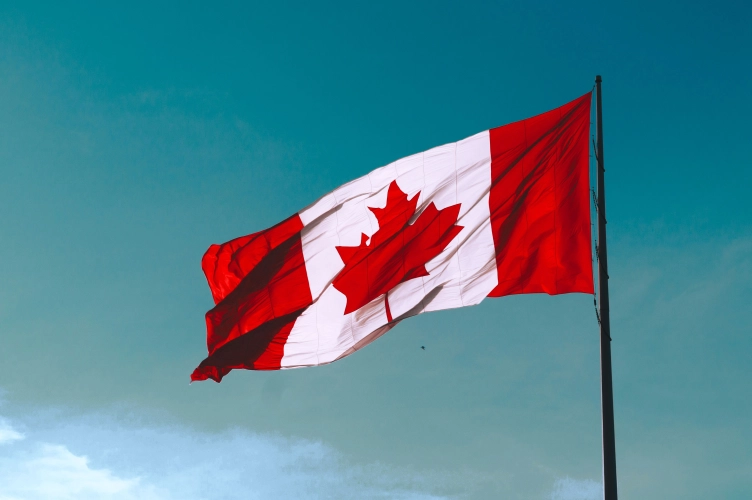International students who study in Canada frequently have a career-boosting stint in the Canadian workforce in their sights.
If working in Canada after your MBA is top of your to-do list, you're likely thinking about how you can expand your network and gain employment opportunities, as well as secure a salary that will help you repay your student loans quickly.
But, to make this career-launching experience a reality, you will need a post-graduation study work permit (PGWP), which allows you to stay and work in Canada for up to three years.
If you plan to do your MBA in Canada in 2025 or later, you'll need to consider the recent changes to rules around working and studying in Canada.
How could the Canada visa news affect you?
Canadian visa policy changes mean the cap on international student permits will reduce by 10% from 2025. The cap now includes master's and doctoral students who were previously exempt.
In recognition of the benefits graduates bring to the labor market, the Immigration, Refugees and Citizenship Canada (IRCC) says it will reserve approximately 12% of the allocation for graduate students.
Canadian b-schools are still very much open to international students. However, there are some key changes to the study permit and post-graduate work permit rules to consider when making your plans.
Recent and upcoming changes will impact:
- Rules around working as a student and as the spouse of a student
- The PGWP application
- Language fluency for PGWP applicants
- Work permits for spouses of graduates
So, with a number of things to consider, let's break down how the recent Canada visa news could affect you.
Can I work while I am studying for a Master's in Canada?
In April 2024, the Canadian government announced changes to rules regarding working while studying, with a temporary increase in the number of hours that international students could work coming to an end.
As a master's student coming to Canada to study, you can now work up to 20 hours per week off campus. There are plans for this to increase to 24 hours per week sometime this fall. There is not a cap on working hours during scheduled academic breaks.
Rules to remember:
- You can only start work in Canada once you begin your master's.
- You need to be a student at a designated learning institution on a program lasting six months or longer.
- You will need a social security number.
- You may work multiple jobs, but your total hours cannot exceed the cap.
If you study part time but meet the rest of the criteria, you may be able to work if studying part time is due to a change in course load.
What is the PGWP?
If you hope to stay in Canada to work after your Master's or MBA, you will need to get a post-graduation study work permit PWGP to secure a visa. As a graduate of a master's degree program, you could apply for a three-year PGWP.
To apply for a PGWP, you need to have completed an eligible program of study at a Designated Learning Institution (DLI). Your program must last a minimum of eight months. You can check the DLI list to find the business schools that are eligible.
Only time spent studying In Canada will count towards the length of your program. You must also have completed at least half of your program in person in Canada.
How do I apply for a PGWP?
In most cases, you should apply for a PGWP online via your IRCC account. You can do this from inside or outside Canada. However, to be able to work while awaiting the decision on your application, your study permit must still be valid.
The PGWP application fee is $255, though you may have other costs to pay depending on your circumstances, such as additional exams to work in particular fields.
If you are expecting to receive your confirmed study marks after your study permit expires, you can apply for a visitor record. Another option is to leave Canada and apply for your PGWP when able.
When you submit your PGWP application, you'll need to prove that you have completed your studies. You can do this with a degree or diploma, an official transcript or using an official letter from your school.
What English language level do I need for a PGWP?
New rules for language proficiency for international students applying for a PWGP apply from November 1st 2024.
As a graduate, you'll need to demonstrate your proficiency in either English or French by achieving Canadian Language Benchmark (CLB) 7.
This is generally a lower proficiency level than than most institutions ask master's applicants to demonstrate. However, there is a cost attached to showing your proficiency as you must submit proof in the form of an IRCC-approved language test.
What are the spouse visa rules in Canada?
In September 2024, the IRCC announced that open work permits for spouses of students and foreign workers will be more limited moving forward.
Now, open work permits will be available for spouses of graduates of master's degree programs lasting 16 months or longer.
Spouses of foreign workers with professional occupations, high-level managerial positions, or who work in sectors with labor shortages may also be eligible. For example, spouses of CEOs, lawyers, and professors. Or those working in science, technology, engineering, or sectors such as construction and healthcare.
What is the PGWP processing time?
The time it takes to process a PGWP application can vary according to factors like how and where you submit your application. Expect it to take longer during peak application periods.
The typical processing time is between 80 and 180 days. You can check estimated processing times online.
Canada has long been a place where MBA applicants aspire to study and work. While there are new rules, considering how they could impact you will help you plan your MBA journey effectively.
Photo by Praveen Kumar Nandagiri on Unsplash





